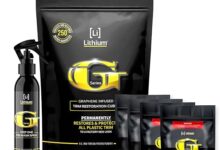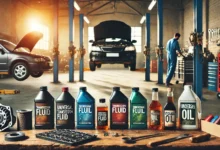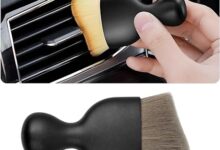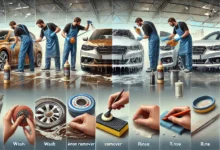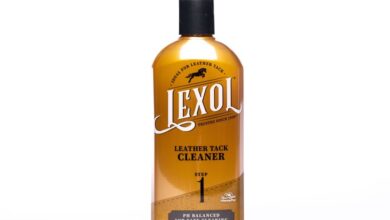Why Are My Brake Discs Rusty ?
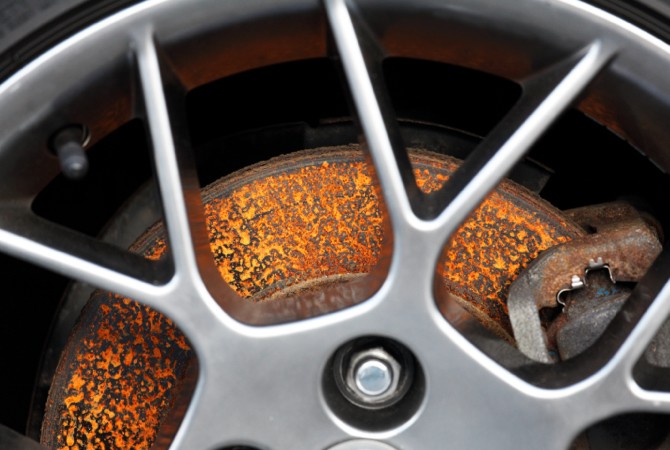
If you’ve ever noticed a reddish-brown dust or coating on your brakes, particularly in the morning or after a period of non-use, you’re encountering a common issue: rust. Here’s what you need to know about why rust forms on brake components, where it can appear, and its potential effects on your vehicle’s performance.
Why Are My Brake Discs Rusty
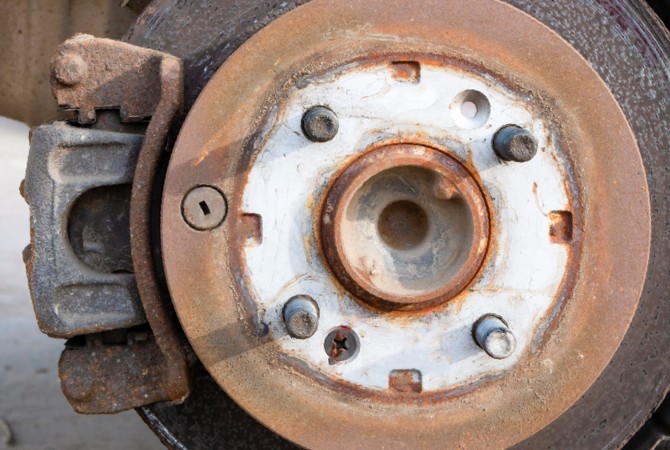
Brake pads and rotors are primarily made from metals such as steel and cast iron. These materials are prone to rust when exposed to moisture, which can come from several sources:
- Rain and Snow: Water from precipitation directly contacts the brake parts.
- Dew and Humidity: Overnight or in moist conditions, condensation can form on the cooler surfaces of your vehicle, including brake components.
- Road Conditions: Driving through puddles or wet roads can splash water onto the brakes.’
Where Can Rust Form on Brake Pads and Rotors?
- Brake Pads: Rust can develop on the surface of the pads and on the backing plate. The latter can lead to more severe issues such as the delamination of the friction material.
- Rotors: Rust is commonly found on the rotor surface but can affect any iron-based component exposed to the elements.
How Does Rust Affect My Brakes?
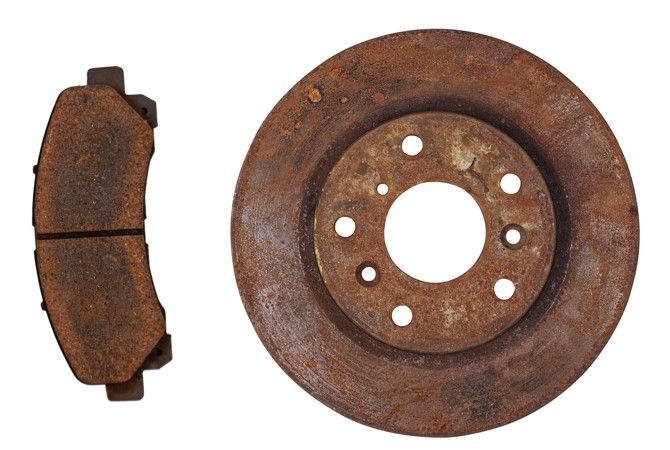
- Surface Rust on Pads and Rotors: This type of rust is generally harmless and is wiped away when the brakes are applied during normal driving. It typically doesn’t impact brake performance in a significant way.
- Rust on Rotor Surface Leading to Pitting: If a vehicle isn’t driven for an extended period, rust can cause pitting on the rotor’s surface. Pitted rotors can lead to uneven brake pad wear and potentially diminish the smoothness of braking, causing vibrations and a decrease in performance.
- Corrosion on Brake Pad Backing Plates: This can cause the friction material to separate from the pad, resulting in increased noise, vibrations, and harshness when braking. If severe, it necessitates the replacement of the brake pads.
Preventing and Addressing Rust on Brakes

Regular Maintenance and Driving: Regularly driving your vehicle can prevent the buildup of rust on brakes. Frequent use helps keep components clean and free from excessive rust.
Inspection and Cleaning: Regular inspections by a professional can catch early signs of rust and address them before they become problematic. Cleaning your brakes during routine maintenance or after exposure to extensive moisture can also help.
Replacement: In cases where rust has led to structural damage or pitting that affects performance, replacing the affected components—such as rotors or brake pads—is necessary to ensure safety and restore full functionality.
Effective Strategies to Minimize Rust on Brakes and Rotors
Rust on brake components is not just unsightly; it can also significantly affect the performance and longevity of your vehicle’s braking system. Here are several proactive steps you can take to minimize rust and ensure your brakes remain in top condition.
Choose High-Quality Brake Parts
Investing in high-quality brake parts can make a significant difference in the lifespan and effectiveness of your braking system. Products like Wagner® premium brake pads and rotors are specifically designed to resist corrosion:
- Wagner OEX and OEX Car Brake Pads: These pads feature galvanized steel plates and premium stainless-steel hardware, enhancing their resistance to corrosion. The galvanization process on the backing plates not only prevents rust but also ensures a stronger bond, reducing the risk of rust jacking.
- Wagner Premium Rotors: Equipped with an E-Shield® coating on the non-braking surfaces, these rotors are protected against corrosion caused by dirt, debris, salt, and other harmful contaminants. This coating helps maintain the integrity and performance of the rotors over time.
Using Wagner OEX brake pads in conjunction with Wagner premium rotors can lead to optimal braking performance, minimizing the chance of rust affecting your brake system.
Parking and Storage
How and where you store your vehicle can impact the development of rust:
- Dry Storage: Whenever possible, park your car in a garage or under a carport. Keeping your vehicle in a dry environment overnight can prevent the condensation and moisture accumulation that leads to rust.
- Use a Car Cover: If indoor parking isn’t an option, consider using a high-quality car cover that repels moisture. This can also protect against dew and frost, which contribute to rust formation.
Regular Maintenance
- Frequent Washing: In areas where road salt is used during the winter, it’s crucial to wash your vehicle regularly. Focus on the undercarriage and wheel wells where salt and grime accumulate, as these can corrode metal parts quickly.
- Visual Inspections: Regularly inspect your brakes for signs of rust or wear. Catching rust early can prevent more severe damage and maintain the effectiveness of your braking system.
- Professional Checks: Have your brakes checked by a professional during routine maintenance or oil changes. They can identify issues that might not be visible to the untrained eye and suggest appropriate solutions.
By implementing these strategies, you can significantly reduce the risk of rust on your brakes and rotors, thereby extending the life of these critical components and maintaining optimal vehicle safety and performance.


